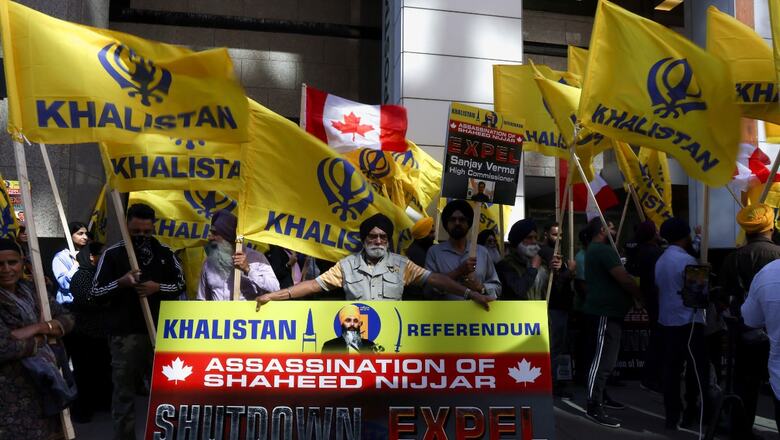
views
With regard to the current fracas with Canada, for which the reasons are very serious, two things stare us in the face: one is an incontrovertible fact, and the other is thus far an unproven allegation. The fact is that Canada has for decades gradually become a confirmed haven for Khalistani extremism, directed against the sovereignty and integrity of India.
Canadian Prime Minister Justin Trudeau recently made the allegation that there is human and signal intelligence of India’s complicity in Khalistani terrorist Hardeep Singh Nijjar’s murder. He said that Canada had got a tip-off of this from one of the ‘Five Eyes’ countries—USA, UK, Australia, and New Zealand, apart from Canada itself. India emphatically denied this allegation, and Trudeau has so far not provided concrete proof underlying his inflammatory allegation.
But India’s accusation of Canada encouraging, nurturing, and promoting terrorism directed against a friendly country, is there for the world to see. As far back as 1971, Dr Jagjit Singh Chouhan announced himself as the ‘President of Khalistan’ while residing in Canada, and gave a full-page ad in The New York Times to proclaim this. Not surprisingly, the then Pakistan PM Zulfiqar Bhutto immediately offered him support. Nor can the world forget that the biggest terrorist action prior to 9/11 was the bombing of Air India flight Kanishka from Montreal to New Delhi in 1985, where 328 people were killed. The terrorist organisation, Babbar Khalsa, operating out of Canada, publicly took credit for this heinous act of terror.
The then PM Pierre Trudeau, father of Justin Trudeau, was credibly accused of sheltering the head of Babbar Khalsa, Talwinder Parmar. He refused India’s request to extradite Parmar, on the ‘quaint’ ground—as Canadian journalist Terry Milewski in his book ‘Blood for Blood: Fifty Years of the Global Khalistan Project’ has recorded—that India was insufficiently deferential to former British Queen Elizabeth, head of the Commonwealth organisation, and also the titular head of state of Canada.
His son Justin has carried this lethal terrorist bias to a new level. The reasons are not compelling, but cynical expediency does not care if they are. Canadian citizens of Indian origin constitute only 3.76 per cent of the population. Numerically, Hindus and Sikhs are roughly evenly divided: some 800,000 Sikhs comprise 2.1 per cent of the population and 820,000 Hindus the rest, along with some other minor denominations. The Sikhs, largely concentrated in British Columbia, contribute 8 to 10 seats to the Canadian Parliament consisting of 338 seats. As per the voting pattern, 80 per cent of the Sikhs voted for Trudeau’s Liberal Party.
While the Sikh support is important in closely contested elections, and far above their size in funding the Liberal Party, their representation in Trudeau’s cabinet is completely disproportionate to their numerical or electoral strength. In Trudeau’s cabinet of 30 members, 4 are Sikhs, over 10 per cent as against a population of 2.1 per cent. Significantly, they hold key portfolios: Harjeet Sajjan is the Defence minister, Navneet Bains is the minister of Innovation, Science and Economic Development, Amarjeet Sohi is the minister of Infrastructure, and Bandeep Chaggar is a junior minister in charge of Tourism. Of these, Harjeet Sajjan is the son of Kuldip Sajjan, a board member of the extremist World Sikh Organisation; and Amarjeet Sohi, earlier a bus driver in India, was in jail in Punjab for two years in the 1980s for his terror-related activities.
Canada does not deny that Nijjar entered the country by giving a false background. The country is also aware that he was the leader of the extremist Khalistan Tiger Force, worked closely with Gurpatwant Singh, head of the banned Canadian chapter of ‘Sikhs for Justice’, and was in active contact with the ISI in Pakistan from which he also received funds. He was also openly backing the short-lived secessionist career of Amrit Pal, the Bhindranwale look-alike who mysteriously surfaced recently as the militant head of Waris Punjab De. Further, India had given Canada evidence of Nijjar’s hand in targeted killings in India, the National Investigation Agency (NIA) had openly declared him a terrorist, and Interpol had issued a Red Corner Notice against him. In spite, of all this, he was not reigned in.
While accusing India, Canadian police could not but have known that Nijjar was involved in a bitter dispute on the control of a Gurudwara with Ripudaman Singh Mallick, son of an accused in the Air India bombing case, but later acquitted. Given this, his murder could well be a consequence of internecine warfare within a section of the Sikh community.
The international community is committed to fighting terrorism. In 1999, the UN passed the International Convention for the Suppression of Terrorism, which pledges to enhance international cooperation among States in developing and adopting effective measures for the prevention of financing of terrorism, as well as for its suppression through the prosecution and punishment of the perpetrators. (Emphasis mine). In 2001, the UN Security Council adopted Resolution 1373 under Chapter VII of the UN Charter, obligating States to implement more effective counter-terrorism measures on the national level and to increase international cooperation in the struggle against terrorism. There are many other treaties as well, and the Comprehensive Convention on International Terrorism is under advanced negotiation at the UN.
Canada has done little to curb verifiable terrorist activities against India; it has become the hub for money laundering for Khalistan groups to finance terrorism. India has kept it consistently informed about its soft and ineffective approach to curb this terrorism. On the contrary, Canada has, for electoral politics, encouraged Sikh terrorism, even though the overwhelming bulk of Sikhs and Hindus in Canada are peace-loving and law-abiding citizens. Nor has Khalistan any traction in Punjab today, so the defence that it is a ‘liberation’ movement and must enjoy freedom of speech is just a cover-up.
There has to be a limit to double standards. The ambivalent though calibrated stand taken by the US in this matter, and that of other countries of the rich “white man’s” club of nations, is a classic example of such hypocrisy. If a friendly country was complicit in using terrorism to encourage the break-up of the US, would it heed homilies before decisively taking action against it? The fact that India has not done so thus far should not mean that such a license to act only lies with the Western countries. Canada, even if it’s a member of the exclusive G7 and a part of the Five Eyes anglophone intelligence club, should have been warned about its promotion of terrorism against India, much earlier by these very countries.
A final word. The province of Quebec in Canada had in the second half of the last century a very active separatist movement for an independent State. The culture of Quebec is French and 78 per cent of its population speaks French. French President Charles de Gaulle in 1967 made a public appeal for its independence while on a visit to Canada. Did Canada approve of it? Today, Trudeau is, directly or indirectly, doing the same with regard to fringe Khalistani supporters who threaten the integrity of India.
How can India then be wronged for its condemnation of such State-supported terrorism, and quietly accept Trudeau’s unproven allegation? Our governments should have raised this matter publicly long before, but it is good that we are finally doing the right thing now.
The author is a former diplomat, an author and a politician. Views expressed in the above piece are personal and solely that of the author. They do not necessarily reflect News18’s views.












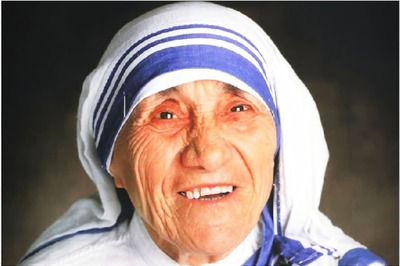

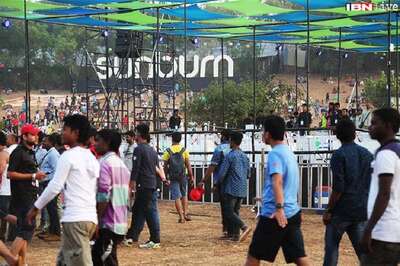



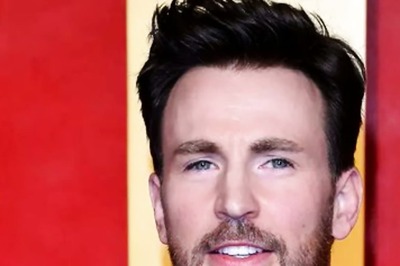
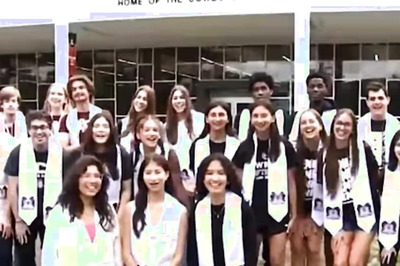
Comments
0 comment